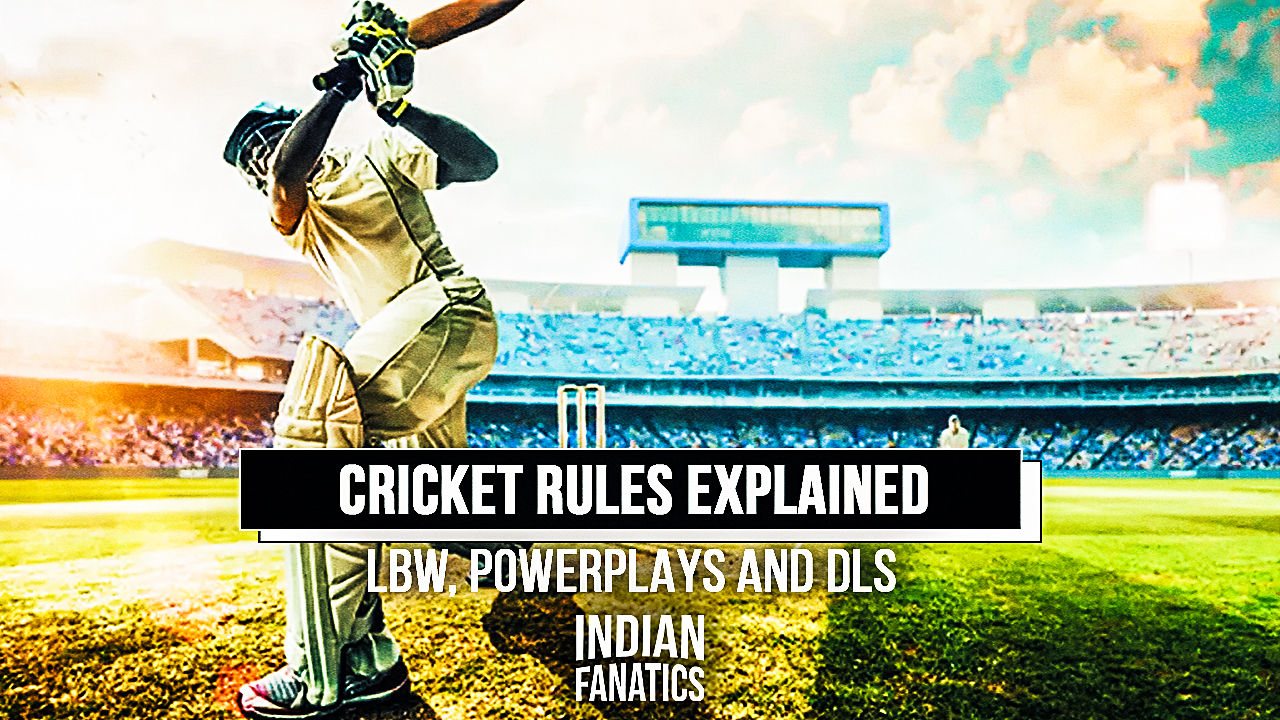
Cricket Rules Explained: LBW, Powerplays, and DLS
Cricket, often dubbed the gentleman’s game, is not just about bats, balls, and runs. It’s a sport rich in rules and nuances that add layers of strategy and excitement. Whether you’re a seasoned fan or a newcomer to the game, understanding key cricket rules is crucial. In this guide, we’ll delve into LBW (Leg Before Wicket), Powerplays, and the intriguing DLS (Duckworth-Lewis-Stern) method. So, grab your cricket bat, let’s step into the crease, and demystify these aspects of the game!
1. LBW (Leg Before Wicket): Decoding the Enigma
Professional Insight
LBW is one of cricket’s most debated and scrutinized rules. In essence, it occurs when the ball strikes any part of the batsman’s leg, and the umpire judges that, had the leg not been there, the ball would have gone on to hit the stumps. It’s a rule that often involves complex ball-tracking technology to ensure accuracy.
Friendly Explanation
Picture this: the bowler sends down a rocket, and the batsman, in an attempt to defend, gets struck on the leg. Now, if the ball was destined to crash into the stumps, LBW comes into play. It’s a bit like cricket’s version of chess – a strategic move that keeps both bowlers and batsmen on their toes.
2. Powerplays: Unleashing Strategic Fury
Professional Insight
Powerplays, introduced to add dynamism to the limited-overs formats, are specific periods in the innings with different fielding restrictions. In ODIs, the first ten overs are the mandatory Powerplay, during which only two fielders are allowed outside the 30-yard circle. In T20s, the first six overs constitute the Powerplay.
Friendly Explanation
Imagine the first ten overs of an ODI – a phase where the batsmen aim to maximize runs, and bowlers strategize to strike early. It’s cricket’s version of an adrenaline-fueled sprint, setting the tone for the rest of the game. Powerplays turn the cricket field into a tactical battlefield, where every move counts.
3. DLS Method: Rain, Runs, and the Art of Adjustment
Professional Insight
The Duckworth-Lewis-Stern (DLS) method, now widely used in rain-affected limited-overs matches, is a mathematical formula that adjusts the target score for the team batting second. It considers the resources (overs and wickets) lost due to rain, aiming to create a fair target for the chasing team.
Friendly Explanation
Rain, the occasional party crasher in cricket, can disrupt a match. Enter the DLS method – the umpires’ secret weapon to level the playing field. It’s like having a cricket mathematician on standby, recalculating targets in real-time based on the rain’s interference. So, when raindrops fall, the DLS method takes center stage, ensuring a fair and thrilling contest.
4. Run-Out Drama: Inches and Instincts
Professional Insight
Run-outs, often game-changers, occur when a batsman attempting a run fails to reach the crease before the bails are dislodged by the fielding side. The decision involves quick reflexes and precise throwing accuracy, making it one of the most exhilarating moments in cricket.
Friendly Explanation
It’s a sprint between bat and ball – a race where every millisecond counts. The fielding side, akin to a superhero, aims to hit the stumps with sniper-like precision, while the batsman, like a swift avenger, tries to beat the throw. The run-out, a theatrical spectacle in the game, where split-second decisions shape destinies.
5. No-Ball Chronicles: Overstepping and Free Hits
Professional Insight
No-balls, often a bowler’s bane, occur when the bowler oversteps the popping crease, delivering an illegal delivery. In limited-overs cricket, the batsman gets a free hit for certain no-ball offenses, meaning they cannot be dismissed except by a run-out.
Friendly Explanation
Imagine the thrill of a free hit – a chance for the batsman to swing for the fences without fear of dismissal (except for run-outs). The bowler, on the other hand, walks the tightrope, ensuring their front foot doesn’t breach the line. No-balls, the high-stakes moments that add spice to the game.
6. Review System: Tactical Gambit or Strategic Wisdom?
Professional Insight
The Decision Review System (DRS) allows teams to challenge on-field decisions made by the umpires. It involves ball-tracking technology and ball-to-surface contact analysis to provide a more accurate adjudication.
Friendly Explanation
DRS is the cricket equivalent of a team calling for a second opinion. Did the ball pitch outside the leg stump? Was there an inside edge? Teams strategically use reviews to contest decisions they believe are incorrect. It adds a layer of drama and suspense, often turning the tables in a tightly contested match.
Conclusion
Cricket, with its labyrinth of rules, is a sport where every delivery, every decision, and every run carries significance. Understanding LBW, Powerplays, DLS, and other intricacies enhances the joy of watching and playing the game. So, the next time you find yourself in a heated cricket discussion, armed with the knowledge from this guide, you’ll be ready to dissect the game with the precision of a seasoned cricket analyst and the passion of a true fan. Play on, cricket enthusiasts!



